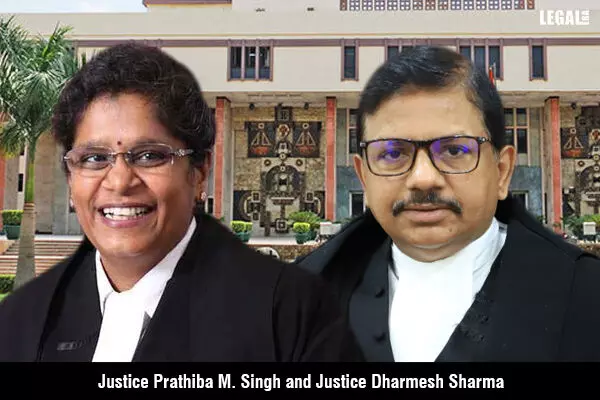- Home
- News
- Articles+
- Aerospace
- Artificial Intelligence
- Agriculture
- Alternate Dispute Resolution
- Arbitration & Mediation
- Banking and Finance
- Bankruptcy
- Book Review
- Bribery & Corruption
- Commercial Litigation
- Competition Law
- Conference Reports
- Consumer Products
- Contract
- Corporate Governance
- Corporate Law
- Covid-19
- Cryptocurrency
- Cybersecurity
- Data Protection
- Defence
- Digital Economy
- E-commerce
- Employment Law
- Energy and Natural Resources
- Entertainment and Sports Law
- Environmental Law
- Environmental, Social, and Governance
- Foreign Direct Investment
- Food and Beverage
- Gaming
- Health Care
- IBC Diaries
- In Focus
- Inclusion & Diversity
- Insurance Law
- Intellectual Property
- International Law
- IP & Tech Era
- Know the Law
- Labour Laws
- Law & Policy and Regulation
- Litigation
- Litigation Funding
- Manufacturing
- Mergers & Acquisitions
- NFTs
- Privacy
- Private Equity
- Project Finance
- Real Estate
- Risk and Compliance
- Student Corner
- Take On Board
- Tax
- Technology Media and Telecom
- Tributes
- Viewpoint
- Zoom In
- Law Firms
- In-House
- Rankings
- E-Magazine
- Legal Era TV
- Events
- Middle East
- Africa
- News
- Articles
- Aerospace
- Artificial Intelligence
- Agriculture
- Alternate Dispute Resolution
- Arbitration & Mediation
- Banking and Finance
- Bankruptcy
- Book Review
- Bribery & Corruption
- Commercial Litigation
- Competition Law
- Conference Reports
- Consumer Products
- Contract
- Corporate Governance
- Corporate Law
- Covid-19
- Cryptocurrency
- Cybersecurity
- Data Protection
- Defence
- Digital Economy
- E-commerce
- Employment Law
- Energy and Natural Resources
- Entertainment and Sports Law
- Environmental Law
- Environmental, Social, and Governance
- Foreign Direct Investment
- Food and Beverage
- Gaming
- Health Care
- IBC Diaries
- In Focus
- Inclusion & Diversity
- Insurance Law
- Intellectual Property
- International Law
- IP & Tech Era
- Know the Law
- Labour Laws
- Law & Policy and Regulation
- Litigation
- Litigation Funding
- Manufacturing
- Mergers & Acquisitions
- NFTs
- Privacy
- Private Equity
- Project Finance
- Real Estate
- Risk and Compliance
- Student Corner
- Take On Board
- Tax
- Technology Media and Telecom
- Tributes
- Viewpoint
- Zoom In
- Law Firms
- In-House
- Rankings
- E-Magazine
- Legal Era TV
- Events
- Middle East
- Africa
Delhi High Court Rules Quashing Of Show Cause Notice On One Issue Does Not Halt Adjudication Of Other Issues

Delhi High Court Rules Quashing Of Show Cause Notice On One Issue Does Not Halt Adjudication Of Other Issues
The Delhi High Court has ruled that the quashing of a show cause notice (SCN) on one issue does not preclude the adjudication of other issues raised in the notice. This decision came after the High Court quashed the SCN related to duty on the free supply of materials, but the CESTAT proceeded to discharge the entire SCN.
Bench of Justices Prathiba M. Singh and Dharmesh Sharma observed that although the SCN was quashed with respect to the free supply of materials, the Department was permitted to proceed according to the ruling in Era Infra Engineering Ltd. vs. Union of India and exclude the value of free materials. The Court emphasized that the liberty given to the Department implied that other issues in the SCN, such as short payment of Service Tax, education cess, and treatment of secondary and higher education cess, were still unresolved and required adjudication.
The assessee, a company engaged in finishing buildings and civil structures, had availed CENVAT credit on inputs and input services, which led to the SCN and subsequent demand. The matter was initially decided in the assessee’s favor by the Supreme Court, which ruled that services or materials provided free of charge should not be included in the gross value for service tax purposes.
The Adjudicating Authority had initially quashed the SCN, and the CESTAT supported this decision, discharging the entire notice. However, the Revenue challenged this outcome, arguing that the SCN included multiple issues, and only the matter concerning the free supply of materials had been addressed in previous rulings. The High Court agreed with the Revenue's argument, ruling that the CESTAT and the adjudicating authority had erred in assuming that the quashing of one issue meant that the entire SCN was invalid.
The High Court directed that all other issues raised in the SCN, including the short payment of Service Tax and other cess-related demands, be adjudicated in accordance with the law.



